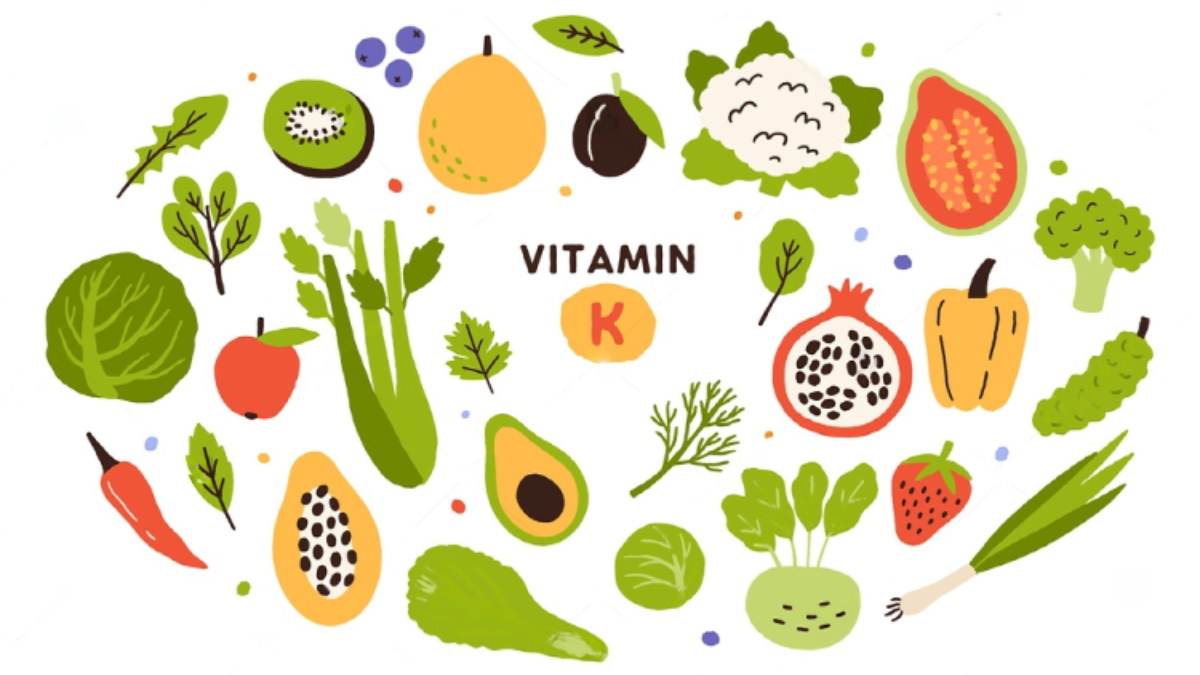Vitamin K: Vital for Health and Wellness Beyond the Basics
Updated: November 4, 2024

Vitamin K, named from the German term Koagulationsvitamin, is essential for blood clotting and bone health, yet its value often goes unrecognized. Unlike more familiar vitamins, Vitamin K, which is primarily comprised of K1 and K2 compounds, holds unique health applications and potential roles across multiple industries. Vitamin K is found in leafy greens, meats, cheeses, and fermented foods, as well as a variety of healthy foods and supplements, but the benefits of the nutrient go beyond typical nutrition to focus on medical and cosmetic concerns.
This article dives into Vitamin K's benefits, uses, and the overlooked opportunities for businesses to harness its potential within health, wellness, and beauty markets.
The Role of Vitamin K in Health
Vitamin K's most widely recognized function is blood clotting so we don't bleed to death. Because of this ability, it is critical for those at risk for bleeding disorders, as is the case for newborns who receive a Vitamin K injection shortly after birth to protect against hemorrhagic disease. Vitamin K is also given for overdoses of blood thinners such as Coumadin to counteract the excess anticoagulation and to stabilize clotting.
Leafy vegetables are a source of standard Vitamin K1, the preferred vitamin for medical applications because of its faster action and more targeted effects. In contrast to Vitamin K2, it promotes the prevention and treatment of osteoporosis, mainly steroid-induced bone loss.
For individuals facing a risk of osteoporosis or heart disease, K2's role becomes particularly valuable. By supplying specialized K2-based supplements, health-focused companies can serve a growing demographic interested in preventative health.
Blood Clotting and Deficiency Concerns
One of the most well-known roles of Vitamin K is facilitating blood clotting and excessive bleeding. For example, an injection of Vitamin K is often given to newborns to prevent such bleeding problems. At the same time, adults who have Vitamin K deficiency are relatively rare, but they would have very serious bleeding risks. Suppose you have conditions like Crohn's disease or celiac disease or need to take certain medications. In that case, you are at risk for Vitamin K deficiency because your intestines are also not absorbing Vitamin K. Heavy alcohol and drinking, severe malnutrition, or certain medications can also increase your risk of deficiency.
Broad Health Benefits and Uses of Vitamin K
Vitamin K serves a wide range of uses, from managing bleeding disorders to supporting bone health and treating skin conditions. It has been used to:
- Aid newborn health: Administered to newborns to prevent bleeding disorders due to low Vitamin K levels.
- Reverse anticoagulant effects: Vitamin K counters the blood-thinning impact of medications like warfarin, helping maintain safe blood-clotting levels.
- Relieve skin issues: Applied topically to treat spider veins, scars, bruises, and conditions like rosacea.
- Treat osteoporosis and bone loss: Vitamin K2 helps improve bone density and prevent fractures.
Ongoing and Emerging Research on the Potential of Vitamin K
Vitamin K is known for its actions in blood clotting and bone health, but new research points to other benefits. For example, a higher intake of Vitamin K2 has been linked with a lower risk of problems like heart disease, certain cancers, and osteoporosis. Studies show that Vitamin K may lower coronary artery calcification, a contributor to heart disease, and might also help with cholesterol levels in dialysis patients.
While findings are preliminary, these discoveries may extend beyond vitamin K's preventive health uses to those looking to age well. The potential benefits of these are that they allow businesses to explore Vitamin K supplements or fortified products as part of a wider holistic health wellness range.
Safety, Precautions, and Interactions
In general, recommended dosages of Vitamin K1 and K2 are both considered safe. While they can be taken with most medications, you should take them with caution if you take blood thinners like warfarin. Individuals taking blood thinners should speak to healthcare professionals before altering Vitamin K intake because vitamin K can decrease the time these medications are effective. Likewise, people with special conditions like diabetes or kidney disease should calculate how much they consume to prevent problems.
Here, the role of healthcare brands could be to provide transparent information around the safe use of Vitamin K. Products containing Vitamin K that include advisory notes regarding possible interactions for users who are managing chronic conditions.
Natural Food Sources and Recommended Intake
Most people obtain sufficient Vitamin K from their diet. Rich sources include vegetables like spinach, asparagus, broccoli and legumes like green beans. Smaller amounts are also found in eggs, strawberries, and liver. Recommended adequate intake varies by age, with infants needing around 2 mcg, children from 30-60 mcg, and adults at 75-120 mcg, depending on factors like age and pregnancy. These guidelines help ensure individuals can achieve adequate intake without needing additional supplements unless prescribed.
Vitamin K supplements are available under medical supervision for individuals who may need more than what dietary sources provide. Healthcare providers often advise against unsupervised Vitamin K supplementation for people using anticoagulants, as it may interfere with the medication's intended effects.
Conclusion
Vitamin K is a standout nutrient for hosting important roles across a wide control of health areas like blood clotting, skin health, bone integrity, and perhaps even avoiding heart disease. From a purely dietary vitamin to a compound with broad applications, its evolution speaks to an expanding appreciation of how specific targeted nutrients provide a needed solution to specific wellness needs.
Today, it is less a vitamin and more a symbol of a preventative, holistic approach to well-being in this health-conscious age. This transformation is an opportunity for consumers and healthcare brands alike to start acknowledging and putting Vitamin K's full potential and benefits to use in their everyday health routine and specialized wellness products.